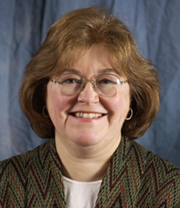UC Institute for Software Research
Distinguished
Speaker Series 2003-2004
 |
Judy
S. Olson
Richard W. Pew Professor of Human Computer Interaction
School of Information, University of Michigan
What is the Cost
(Benefit) of Being Remote: Organizational Simulation as a Tool for Studying
Team Work |
February 13, 2004
Friday
Refreshments and Networking: 1:00 - 1:30
Presentation: 1:30 - 3:00
Faculty Host:
Gloria Mark, gmark @ ics.uci.edu
RSVP: Email RSVP required to Steve Ponting at sponting
@ ics.uci.edu by Monday, February 9.
Location: McDonnell Douglas Auditorium
(building #311)
Cost: No cost to attend.
Directions and parking information are available.
Abstract: For a number of years, we at CREW (the Collaboratory for Research
on Electronic Work) have been conducting field observations, field interventions,
and laboratory studies of remote work. Some results from
those various kinds of studies are inconsistent. For example, in the laboratory
we find no difference between people working face-to-face and those working
with high quality video, yet in the field we find loss of trust, significant
delays, and dissatisfaction. Recently, we have decided to adopt a new method
for examining remote work that is
richer than a laboratory study and yet more controlled than a field study. We
call this an organizational simulation, a buying and selling game of sorts that
is played by a large group (e.g. 10 people) over time. It has a number of features
in common with some aspects of real work, and yet we can control various parameters
and study a fairly large number of groups to reveal the cost and benefits of
being remote, as well as test various promising interventions. I will talk about
several of these initial studies and their results.
About the Speaker: Judith Olson is the Richard W. Pew Professor of
Human Computer Interaction at the University of Michigan. She is a professor
in the School of Information, the Business School, and the Psychology Department.
She got her Ph.D. in Psychology at the University of Michigan then held a postdoctoral
fellowship at Stanford University before returning to Michigan as a faculty
member. Except for three years at Bell Labs and a year at Rank Xerox Cambridge,
UK, she has been at Michigan her entire professorial life. Her research focuses
on the technology and social practices necessary for successful distance work,
encompassing both laboratory and field study methods. She has served on a number
of editorial boards and panels for both the National Research Council and the
National Science Foundation. She was one of the first seven inductees into the
CHI Academy, and this year was given an IBM Faculty Award.
